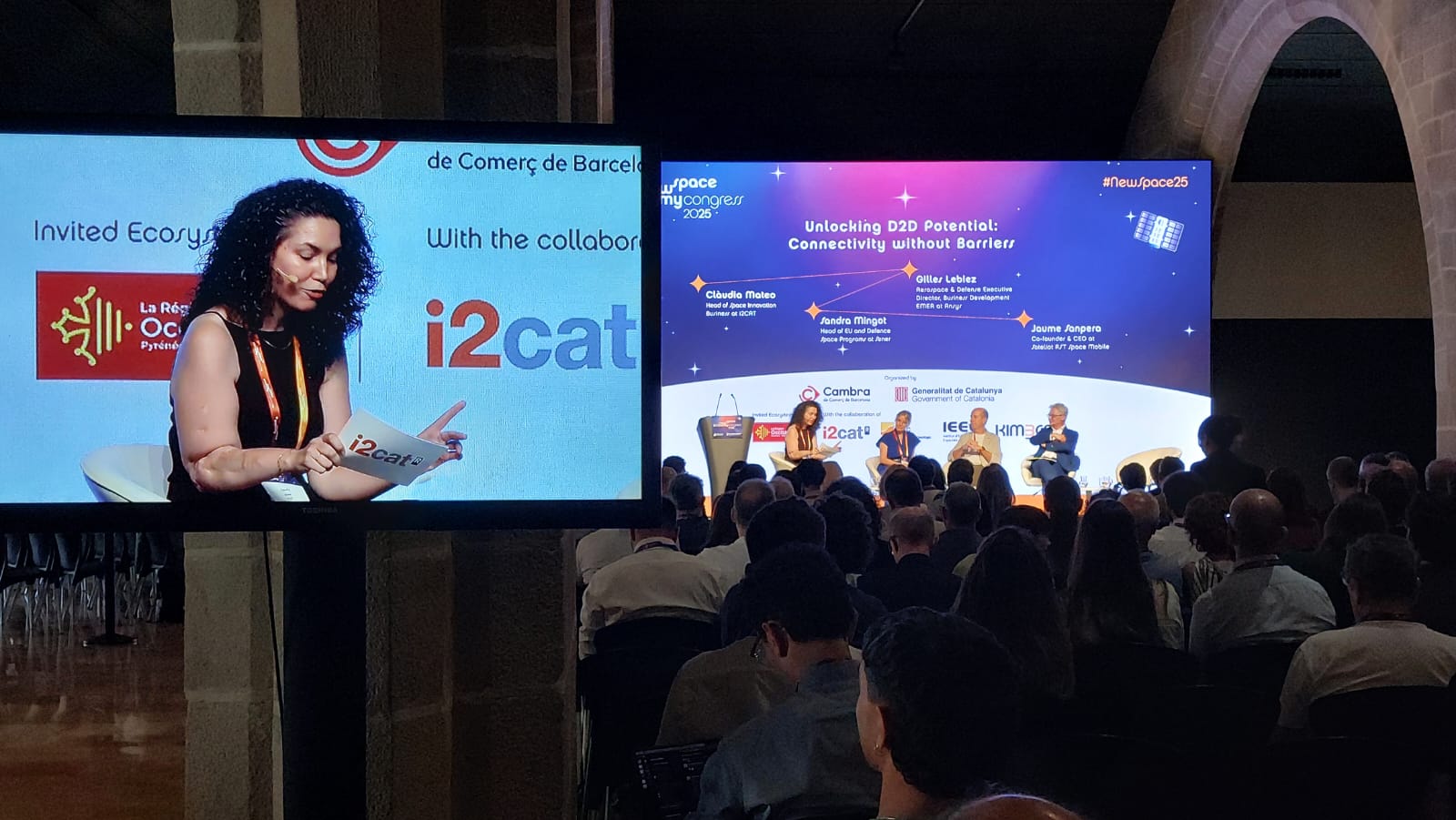
Keep up to date with our innovative initiatives.
Sign up here
The i2CAT Research Centre team has attended the New Space Economy Congress 2025 with a dedicated space devoted to presenting its value proposition in the space sector and engaging in networking and fruitful discussions with colleagues from the ecosystem.
The congress took place on July 3rd and 4th at La Llotja de Mar, Barcelona. This year’s event featured a cutting-edge agenda focused on real-world New Space applications, AI-driven advancements, and how space innovation is becoming an essential tool for end-users across industries. The themes also revolved around the transversal impact of space technologies in daily life, from climate and environmental monitoring to coastal monitoring, urban planning, disaster management solutions, and cross-sector synergies.
i2CAT is a proud returning partner of the New Space Economy Congress. With an international scope, the congress connects key players globally, fostering talent development and collaboration through guided B2B sessions and interactive workshops.

On Thursday at noon, i2CAT’s Head of Innovation Business for the Space Sector, Clàudia Mateo-Segura, moderated the roundtable “Unlocking D2D Potential: Connectivity without Barriers,” which focused on the new paradigm of global connectivity enabled by the emergence of direct communication services between satellites and mobile devices.
The session featured the participation of Jaume Sanpera, Co-founder and CEO at Sateliot, Sandra Mingot, Head of EU Space and Defence Programmes at Sener, and Gilles Lebiez, Executive Director of Aerospace and Defence, Business Development for EMEA at Ansys.
During the discussion, the speakers addressed both the technological and strategic challenges to achieving truly global connectivity, highlighting its importance for European sovereignty, technological resilience, and security.
That same afternoon, i2CAT and the Institute of Space Studies of Catalonia (IEEC) co-organised a working session on technology transfer and commercialisation titled “Commercialisation: exploring the potential of Tech Transfer”.
In this participatory format—launched for the first time at this year’s congress—representatives from universities, technology companies, and end-users came together to explore how advances in space technology can drive transformation in other productive sectors. The session facilitated the sharing of best practices, identified process improvements, and fostered new connections within the ecosystem.
i2CAT is dedicated to bridging the digital divide and enabling global connectivity. To achieve this, the team investigates how to adapt, integrate, and deploy terrestrial networks (TN) in space, utilising non-terrestrial nodes (NTN) such as satellites, high-altitude platforms (HAPS), aircraft, and UAVs, to offer a seamless user experience.
This strategic focus on space communications is a key future commitment for the centre, as it enables the extension of geographical coverage where classic terrestrial networks cannot reach without deploying vast infrastructures. i2CAT’s multi-technology approach is a significant differentiator; its research integrates expertise in mobile and wireless networks, IoT technologies and devices, Artificial Intelligence applied to networks, cybersecurity, and software-defined networks.